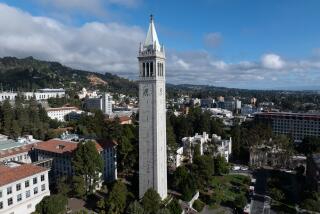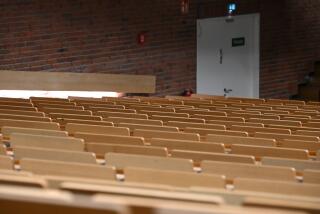Professing Dismay
BOSTON â I am an Islamic scholar, a university professor specializing in medieval Islamic mysticism and philosophy. My work used to be considered somewhat arcane. Now colleagues tell me I am in a âhot field.â I can tell you it sometimes feels more like a âhot seat.â
Since Sept. 11, I have been expected to move easily back and forth among academia, town meetings and think tanks. People now tend to conflate everything relating to Islam, Muslims and the Middle East reductively. I teach Islamic studies, so it is assumed I can comment (in neat sound bites) on terrorism, modern Islam and the war in Iraq.
Even before 9/11, students were curious about the differences between Islam and other religions, and some of their questions betrayed underlying prejudices. They wanted to know about the rigidity of Islamic law, human rights, gender inequality, Islamic proselytizing and the ill treatment of non-Muslims by Muslims. Now, the studentsâ central concerns are Islamic terrorism, Islamic extremism, the global reach of groups like Al Qaeda, anti-intellectualism in Islam and whether Islam poses a threat.
Working through these issues is part of the educational process. Still, the task of overcoming the hostility that comes into the classroom is daunting. I look wistfully at colleagues who teach Buddhism, Judaism, Hinduism and other religions. Do they have to spend class time humanizing their traditions or proving their rich histories? I doubt it.
Today, scholars of Islam struggle to come up with a pedagogical response to global events, and to address the overwhelmingly negative perceptions students bring to learning about Islamic traditions. Clearly there is a need for classes dealing with contemporary issues. But the problem for scholars not trained in modern issues is that theyâre being asked to address subjects far outside their specialties.
I and many of my colleagues feel pressure to change our research. If our work does not contribute to the war on terrorism, then we are seen as unpatriotic. I never thought that global affairs would politicize my field like this.
The way one must teach about Islam today is not the way we were prepared by graduate schools to teach. Students in classes are demanding that course content be relevant to their lives. As one student asked me: âIs this piece of information at all useful in catching Osama bin Laden?â In an introductory course I teach, students read primary documents from theological debates between Sunnis and Shiites in the 11th century. A student recently asked whether âthe Shiites used terrorism to defend their beliefs.â I donât think a Christian scholar would be asked, say, whether Martin Luther used terrorism to defend the 95 theses he posted on the church door. But where Islam is concerned, violence is assumed.
On some level, I can understand my studentsâ obsession with trying to understand this new world. My colleagues and I have been deeply affected by global affairs. Since 9/11, I have seen my country adopt Islamophobia without hesitation. Things like the Patriot Act, the forthcoming Patriot Act II, new Citizenship and Immigration Services registration regulations, government surveillance of Arab and Muslim American communities and infiltration of places of worship have directly affected U.S. Muslims. I have listened as Christian evangelical leaders demonized Islam, calling the prophet Muhammad a pedophile.
Vigilance against foreign terrorists was absolutely a correct response for the U.S. But the kind of intense scrutiny all Muslims have been subjected to goes far beyond ordinary caution. It leads to a deep feeling of insecurity. We all know how easily our lives can be disrupted. No matter that we are loyal citizens of this country: We bear the burden of overseas politics and fanatics.
Even bookstores, every academicâs sanctuary, have become reminders of how the world has changed. The Islam section used to be filled with books of interest to scholars: Now it should be renamed the âjihad and terrorismâ section. There are more books than ever on Islam, but they are written by nonexperts and many carry offensive titles like âSword of Islam: Muslim Extremism From the Arab Conquests to the Attack on America,â or âA Fury for God: The Islamist Attack on America.â These books perpetuate a one-dimensional picture of fundamentalist Islam as being the predominant practice in the Muslim world. Good luck trying to find scholarly works on art, architecture, poetry, philosophy, fashion, ethics and literature of the Arab and Muslim worlds. They exist but are no longer carried.
One positive of all this, I suppose, is that Iâm invited to speak more frequently. But itâs somewhat absurd that I -- a medievalist -- am asked to explain the ideological interconnections between contemporary Wahhabism, jihad organizations and Al Qaeda. In the last few months Iâve been interviewed or asked to speak on the scandals of Pakistanâs nuclear program, Grand Ayatollah Ali Sistaniâs clerical status, Iranian reformers, the banning of the veil in French public schools, the Kashmiri dispute between India and Pakistan and Muslim perceptions of Saddam Husseinâs capture.
I suppose I should be happy that at least my audiences are always alert and engaged. Global events have attracted ordinary people who had no interest in Islam. And I take the opportunity to put events into historical context, because as much as contemporary issues are seen as new phenomena, they arenât. To understand them, it is critical to understand what came before.
Until Sept. 11, I never saw myself as all that different from other Americans. Was I deceiving myself? It certainly felt that way recently coming back from a conference in Canada. I was interrogated, fingerprinted, photographed and humiliated. I could no longer be seen as just another academic attending an arcane conference: I was the other, a stranger and a potential terrorist.
These experiences have transformed me and redefined my identity and my place in academia and society. It is one thing to experience alienation; it is another to have it forced upon you in order to make the majority feel more secure. I didnât go into Islamic studies expecting it to require me to constantly defend my own humanity -- and that of my religion.
More to Read
Sign up for Essential California
The most important California stories and recommendations in your inbox every morning.
You may occasionally receive promotional content from the Los Angeles Times.










